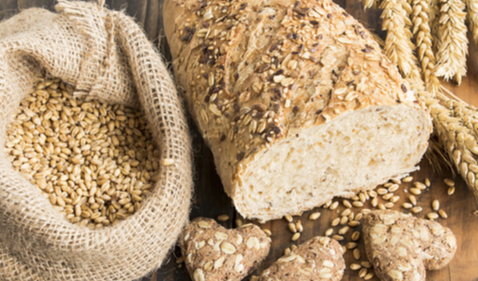— By Melanie McGrice, AdvAPD
One in six Australian couples struggle to conceive [i]. The psychological, physical and emotional impacts of infertility can be overwhelming. As one woman struggling with fertility recently wrote on her Instagram feed, “I am angry. Angry at my friends and family who managed to have children easily, angry at the doctor who told me that I had nothing to worry about, and mostly, angry at myself for all of the croissants that I’ve eaten over the years.”
Pre-conception weight is one of the major risk factors for fertility outcomes, and it is well accepted that weight loss improves fertility in overweight and obese women [ii]. In fact, research suggests that women who have a body mass index (BMI) greater than 30kg/m2 often have natural menstrual cycle disruptions at a rate of almost three times higher than women of a healthy weight ii.
Although research shows that low-carbohydrate diets are no better for long-term weight loss than other energy-restricted diets (and in fact, may be worse, as they are often more difficult to ensure nutritional integrity, and are often more difficult to maintain), low-carbohydrate diets are a popular choice for rapid weight loss [iii].
Considering the urgent weight-loss requirements for many women (particularly in their late 30’s and 40’s) wanting to conceive, we wanted to investigate the impact of low-carbohydrate diets for conception.
Overall, the research shows that lower-carbohydrate diets have a more positive impact on reproductive hormones, ovulation rates and pregnancy rates than standard diets in women who are overweight or obese. However, before adopting a low-carbohydrate diet, there are a few important factors to keep in mind:
- The research does not yet confirm how low in carbohydrates the diet should be. Our research was based on diets which were less than 45% carbohydrates, so that we could include Very Low Energy Diet studies (also known as intensive phase meal replacements, where all meals are replaced with meal replacements). However, although lower than usual, 45% carbohydrates is not ketogenic for many people.
- There’s one small prospective study which used meal replacements (which didn’t meet the criteria for inclusion into our systematic review), and actually reduced the number of eggs available for fertilisation [iv]! This provides a caution that low-carbohydrate diets may not be suitable for everyone wanting to optimise their fertility. One possible alternative may be a low-carbohydrate diet for short-term weight loss, followed by a period of slight weight regain. This practice, known as “flushing”, is often used to improve the fertility of farm animals [v]. A pattern of a period of weight loss, followed by a period of weight regain, has also been found to demonstrate a positive impact on reproduction in women.. Consequently, I believe that a low-carbohydrate diet should only be utilised for a short period of time to optimise menstrual cyclicity and fertility hormones, followed by a period of renourishment.
- Optimal nutrition is essential in the lead-up to pregnancy. Wholegrains are some of the best sources of key fertility nutrients, such as iodine and folate. Women following a low-carbohydrate diet without meeting all their nutritional requirements could do more harm than good, so it’s essential to ensure that our clients are indeed meeting these nutritional requirements.
To see the review, or for further information, go to www.melaniemcgrice.com.au/research.
Follow Melanie on Facebook for regular updates about nutrition for fertility, pregnancy and women’s health.
[i] Fertility and infertility – Department of Health (2011)
[ii] Sim, K.A.; Partridge, S.R.; Sainsbury, A. Does weight loss in overweight or obese women improve fertility treatment outcomes? A systematic review. Obes. Rev. 2014, 15, 839–850.
[iii] http://ajcn.nutrition.org/content/90/1/23.short
[iv] Tsagareli, V.; Noakes, M.; Norman, R.J. Effect of a very-low-calorie diet on in vitro fertilization outcomes. Fertil. Steril. 2006, 86, 227–229.
[v] Butler, S.T. Nutritional management to optimize fertility of dairy cows in pasture-based systems. Animal 2014, 8, 15–26.
